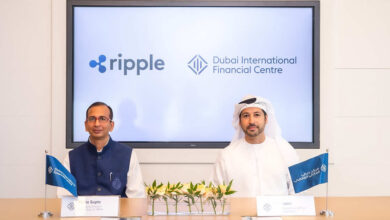News
Global PR Trends Summit: The Power of Corporate Comms

With the Global PR Trends Summit wrapping up, Digital Boom brings you the best tips and inspiring quotes delivered by top-notch international speakers at the two-day summit held on March 29 at Egypt’s Intercontinental City Stars.
Mary Jo Jacobi, Corporate Board Director, Strategist and Broadcast Commentator
- Reputation is the sum of the opinions about an organization or individual.
- You build a brand by saying the right things. You build a reputation by doing the right things.
- You have 7 seconds to make a first and lasting impression.
- Leaders must always exceed expectations. Every encounter is an opportunity to deliver on their expectations. Reputation=Experience – Expectations
- Leaders should avoid jargon.
- Engage employees; they are are the most powerful ambassadors for your brands. Empower employees with the right things to say.
- CEOs and senior executives are brands.
- An individual brand can be a liability as well as an asset.
- Sustainability is the key to long-term success.
Piers Schreiber, VP Corporate Communications, Jumeirah, UAE
- Define your key messages, but if they don’t resonate with the outside world, you fail.
- All of our social media activities are meant to drive traffic to our website to understand our customers’ activities.
- Use images to engage people.
- Bring out the inner storyteller.
- The more time you put into simplifying the story, the more effective your communication will be.
- The word art is significant. A lot of companies will use art to communicate with local communities.
- Our core values are about personalization and excellence.
Sara Walker Kerr, Regional Director of Public Relations MEA, The Ritz Carlton Hotel Company LLC, UAE
- Social media is a great amplifier, but it’s not the single electric guitar and not the broken one. An additional group of speakers in the back row pumps up the volume and sends out the message that has already been broadcast. It’s all about integration.
Donald Steel, Former Chief Communications Advisor, BBC and Global Expert on Crisis Communication, UK
- When making the first statement about a crisis, don’t give too much info; don’t make any overstatements; show sympathy for the victims but don’t claim responsibility.
- All crises are predictable. Nothing can happen to you, your company, or the country that you can’t predict.
- Prepare a list of all that can happen to your company and a list of what you can say to avoid lagging at times of crisis due to a long list of approvals. Statements often come very late because so many approvals have to be given.
- If you have pre-prepared statements, you will always be in control.
- Language tips: always say that your priority is the safety and welfare of the public. The feeling statement is about your values.
5 Rules for a Crisis Statement:
- Tell the truth
- Use statements to take control.
- Act quickly – issue first statement and social media statement within 15 minutes of the crisis
- What you say remains the most important, but using all channels to say it is now vital.
- The “2Fs” rule in a crisis statement: Fact and Feeling
- If you don’t feel that you can react in 15 minutes, you will give your reputation away.
- Don’t promote yourself in times of crisis.
- Promise to update people/media with information. If you don’t give them timely information, they’ll think you know something, and you’re hiding it.
- You are much better to break your own news than to have CNN and BBC break it for you. Take control of your own narrative.
- Always give out your message at the beginning of the interview (e.g., we are sorry for the loss…etc. Because you may never get the chance to say it later in an aggressive interview)
- Don’t answer stupid questions like: Are you going to resign? Divert the conversation and say, for example: ‘we will take full responsibility; the families are our priority at the moment.’
- Don’t create your hashtag; wait for people to create it because it looks a bit too promotional.
- The interview is not over until the reporters are outside the room and miles away.
Please let us know if you have any questions or comments.



